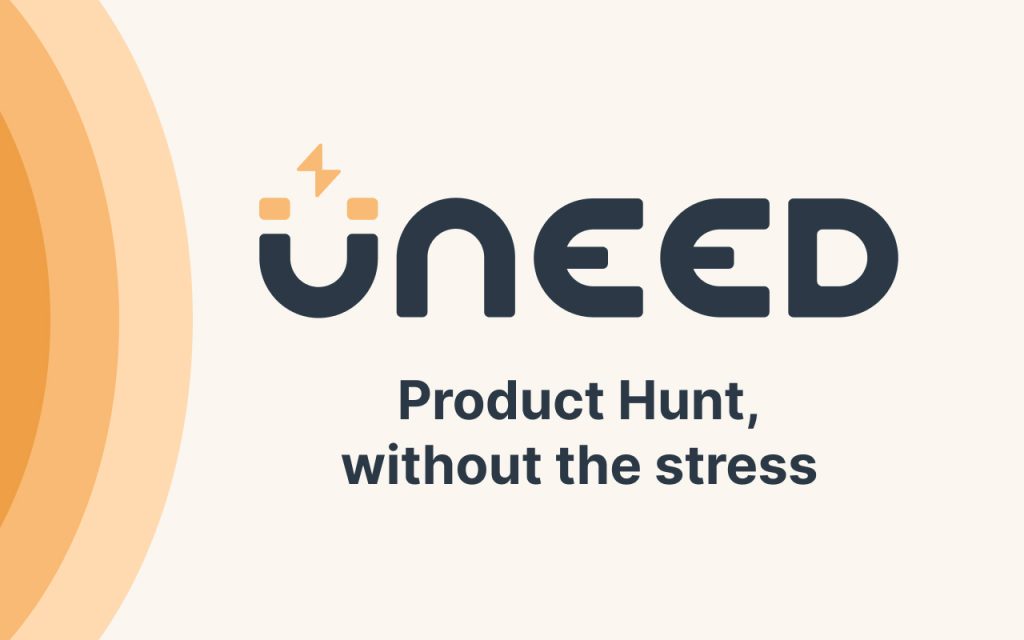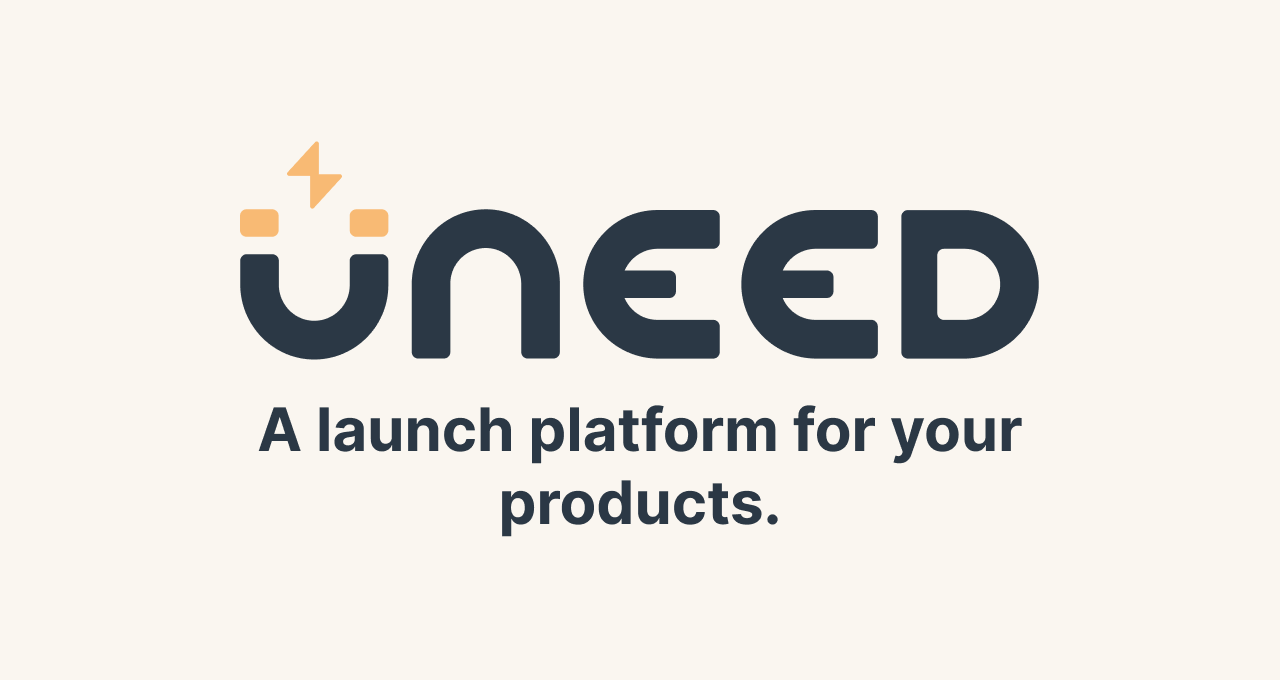🏷️Product: Uneed is a launch platform for tech products, a Product Hunt competitor.
💸Investment: $0
📊Business model: Selling advertising spots.
🛠️Tech stack: Nuxt/NuxtUI/Supabase
🌐Website: https://www.uneed.best
🗨️Social pages:@UneedListsCan you tell us a bit about your background and what led you to develop Uneed?
Of course!
My name is Thomas, and I started Uneed 5 years ago, during my studies at a computer science school, to… test a new JavaScript framework at the time, Nuxt!
Uneed began as “Uneed Frontend,” a simple list of tools for frontend developers. Over the years, the project evolved significantly. Then, at the end of 2023, I started to sense a shift in the wind for Product Hunt: I saw more and more people getting frustrated about not being featured, complaining about bots or low conversion rates, etc., which made me think to position Uneed as a platform alternative to Product Hunt.
That’s when I had the idea to change Uneed, transforming it into a launch platform.
How did you initially attract users to Uneed, especially in a market where Product Hunt already has a strong presence? What strategies proved to be the most effective?
My most valuable asset is time. I haven’t found a miraculous strategy to overthrow Product Hunt, or even to get where I am today. Rather, I found several small techniques which, when accumulated and combined with a lot of patience, allowed me to develop the site:
Gamifying the site to make people come back.
A badge system that can be displayed on one’s website, which increases my domain rating by giving me a backlink, and provides me with some traffic.
Posting daily on social media. Over time, I’ve built an audience of 12,000 followers on Twitter, which helps.
PSEO (Programmatic SEO) is a technique that brings me quite a bit of traffic. Thanks to Uneed’s database, I can generate hundreds or even thousands of pages, such as alternative pages for example.

What has been the general feedback from users who migrated to Uneed, particularly those who were disillusioned with Product Hunt? How have their experiences shaped the platform’s evolution?
The main complaints people have about Product Hunt are the presence of bots, the difficulty in getting featured and the lack of transparency about it, as well as the lack of communication and responsiveness from the Product Hunt team.
With Uneed, I try to directly address all these issues:
- No bots on Uneed. There’s a captcha at registration, protection thanks to Cloudflare, and I’ve even built a custom dashboard that alerts me when suspicious activities occur on the sit, making it a reliable platform alternative to Product Hunt.
- On Uneed, everyone gets featured. Indeed, the number of products to be launched each day is limited, which results in a queue. So you have to wait to publish your product for free, but you’re sure to get visibility.
- I interact directly with my audience and users. When a bug is reported to me, I fix it very quickly. When someone suggests a feature to implement, and it makes sense, I implement it.
With Uneed’s revenue reaching $4K in the last 30 days, how do you plan to sustain this momentum?
We’ve even reached $6K in the last 30 days 🙌🏻!
It’s a difficult question. There’s a good chance my revenue will decrease a bit in the coming months: I’ve booked all my premium spots, the newsletter sponsorship is full for a month, and the advertising spots are too. But that’s okay! What I want to maintain is the traffic. And for that, people need to be satisfied with their launch, they need to get as many clicks as possible. That’s my main goal.
The medium-term developments for Uneed will be centered around the community aspect and user retention. We’ll meet again on the site in a few weeks for more information 😎.
The importance of maintaining independence from investors to avoid the influence of VC-backed startups. How does this align with your long-term vision for Uneed?
This is something very important to me, and I think it’s what’s currently causing Product Hunt to lose its way. When you think about it, isn’t it a bit strange to raise funds to build a website like Product Hunt or Uneed?
Staying independent also means that I don’t have huge profitability or growth objectives, compared to Product Hunt, which today can no longer do without bots on their site, which justify the price of their advertisements.
Your upcoming feature for public upvotes and a “honesty” score aims to enhance transparency. How do you think this will impact user trust and the overall integrity of the platform?
I hope it will impact it positively! The idea is that I absolutely don’t want users to think that the votes are generated by bots. And for that, there’s nothing better than being as transparent as possible and displaying who upvoted which tool, the speed at which upvotes were collected, perhaps even the origin of these upvotes, etc.
I’ve also recently implemented an upvote multiplier system granted to the most active people on the site. This reinforces the weight of the best users, while diminishing that of people who only come to the site to upvote a product and then leave.
Reflecting on your journey with Uneed so far, what have been the biggest challenges you’ve faced, and if you could start over, what would you do differently?
I’ve talked about this a bit in this interview, but the biggest challenge has been time. A launch platform is a mix between a marketplace and a social network: it’s something very complicated to grow.
If I had to start my indie hacking adventure over, I’ll be honest: I would do a different project. I love Uneed, but I wouldn’t see myself spending another 5 years working on it to get where I am today.
If I had to change something about my journey with Uneed, I would of course have liked to pivot to a launch platform alternative to Product Hunt much earlier.
Did you enjoy this interview with Uneed founder? I regularly interview creators who have recently launched their products. Check out additional discussions like this on BetaHunt. For updates, follow me on X.

Leave a Comment